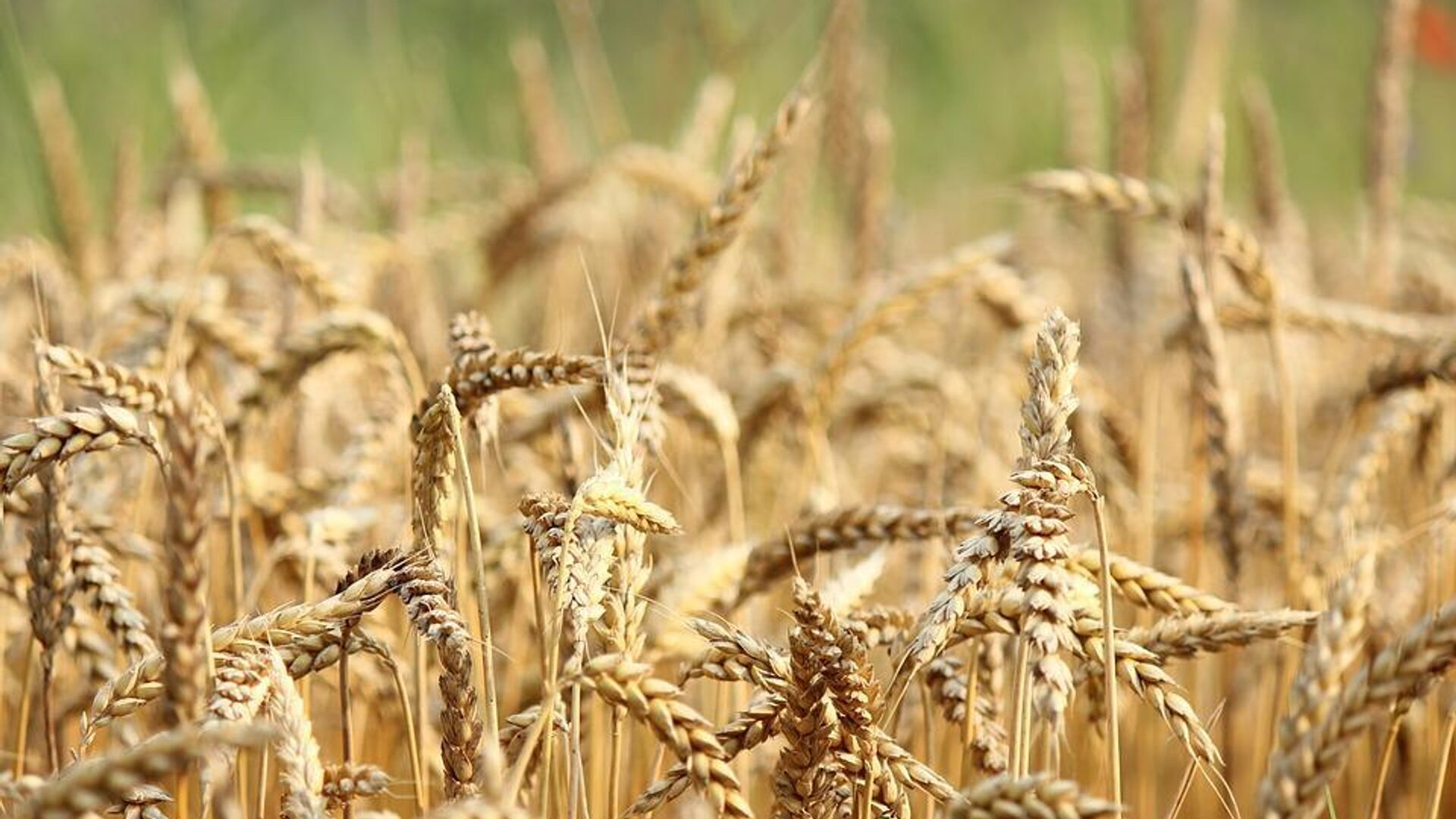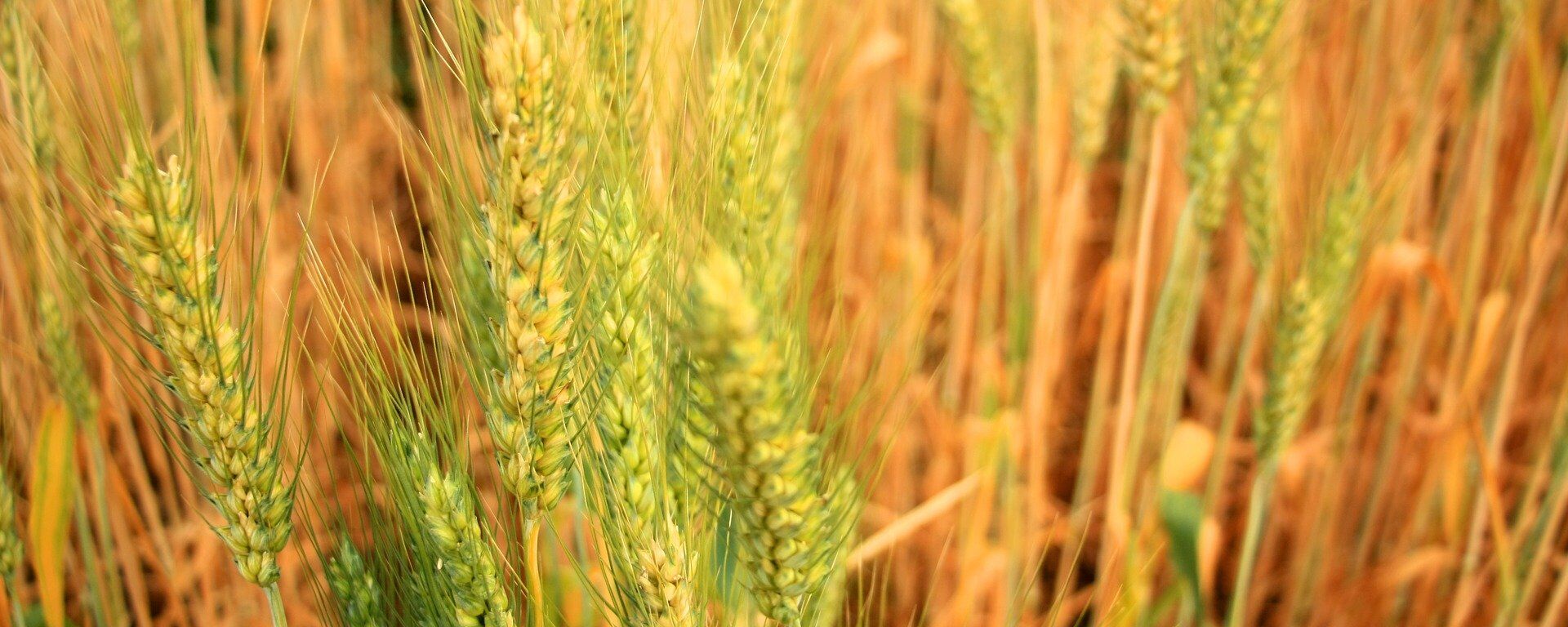https://sputnikglobe.com/20221031/why-did-russia-leave-grain-deal-and-whos-to-blame--1102875661.html
Why Did Russia Suspend Participation in Grain Deal and Who's to Blame?
Why Did Russia Suspend Participation in Grain Deal and Who's to Blame?
Sputnik International
Russia has come under criticism from the US, EU, and NATO for its decision to suspend its participation in the grain deal with Kiev in response to Ukraine's... 31.10.2022, Sputnik International
2022-10-31T16:19+0000
2022-10-31T16:19+0000
2022-11-23T11:36+0000
opinion
russia
ukraine
nato
us
europe
the united nations (un)
turkiye
grain
wheat
https://cdn1.img.sputnikglobe.com/img/07e6/05/19/1095758210_0:14:960:554_1920x0_80_0_0_630f456637dce8a64c242da5c30a91df.jpg
On October 29, the Russian Defense Ministry (MoD) announced that Russia was suspending its participation in the grain deal that allowed Ukrainian grain exports via the Black Sea after Kiev's drone attack on the Russian Black Sea Fleet and civilian vessels in the port of Sevastopol which occurred earlier that day.Having pulled out of the deal, Moscow immediately drew fire from the US, EU, and NATO. US President Joe Biden called Russia's decision "purely outrageous," claiming that it's "going to increase starvation," while State Secretary Antony Blinken even went as far as to claim that Russia "is weaponizing food again." For their part, the EU and NATO demanded that the Kremlin "reverse its decision."How It All BeganThe much-discussed grain deal was signed by Russia and Ukraine on July 22, 2022 in Istanbul's Dolmabahce Palace in the presence of Turkish President Recep Tayyip Erdogan and UN Secretary-General António Guterres, who helped mediate the agreement.The deal came amid growing fears of the emerging food crisis in the Global South, most notably in the Greater Horn of Africa, which is experiencing its worst drought in more than four decades with over 37 million people facing acute hunger, according to the World Health Organization (WHO). The situation was exploited by the West to step up criticism of Russia's special operation to demilitarize and de-Nazify Ukraine.The Western press claimed that Moscow had exacerbated the unfolding famine by "blocking" 20 million tons of grain in Ukraine's sea ports. However, the mainstream media deliberately overlooked the fact that Russia's own food and fertilizer supplies were frozen by the West's sweeping sanctions slapped on almost all sectors of the nation's economy soon after the beginning of the Ukraine special operation on February 24, 2022.It has become a commonplace for the Western press to say that Russia and Ukraine together produce roughly 30% of the global wheat supply, falling short of specifying that Russia's share amounts to 18-20% and Ukraine's to 9-11%. When it comes to fertilizers, Russia remains the world's largest supplier of the much-needed commodity. In 2019, Russia's global share of the nitrogen, potassium and phosphorus export markets accounted for 15%, 19% and 14%, respectively, while Ukraine's share of fertilizers amounted to less than 1%. In May 2022, the African Union, a continental union consisting of 55 member states, warned of the "collateral impact" of the West's unprecedented sanctions on Russia's food supplies to the Global South.At the same time, the narrative of the "Ukraine grain blockade" by Russia does not hold water either: the Russian MoD arranged a safe corridor for food exports from Ukraine as early as in May. The corridors, with a length of 139 miles and width of three miles, were operating daily from 8:00 am to 7:00 pm (GMT+3) in the Black Sea for vessels stationed in the ports of Kherson, Nikolaev, Chernomorsk, Ochakov, Odessa, and Yuzhny. However, Kiev long refused to de-mine its ports.West Did Not Walk the TalkOn July 27, the Joint Coordination Center (JCC) was established in Istanbul to control the movement of ships and cargo. The UN website opened a page to publish JCC reports, information on routes and recipients of agricultural products. According to the UN, 390 bulk carriers shipped around 8.8 million tons of food from the ports of Odessa, Yuzhny, and Chernomorsk in the course of the deal until its suspension by Russia on October 29.Despite Moscow observing the accords, they have never been implemented in full. First, over a half of all food deliveries shipped from Ukraine ended up in warehouses of developed nations, including the EU, the UK, Israel, and South Korea. For some categories of agricultural products - rapeseed, corn, and soybeans - EU countries received from 60% to 100% of supplies from Ukraine. Meanwhile, starving nations, such as Somalia, Ethiopia, Yemen, Sudan, and Afghanistan, received just 3% of the food, primarily through the UN World Food Program.Second, even though the UN guaranteed that Western sanctions constraining Russia's food and fertilizer exports would be lifted, that never happened. Transportation of Russian goods by international companies is prohibited. The obstacles to the export of Russian fertilizers through European countries have not been removed. Russian ships still do not have access to European ports, while the lack of insurance of Russia's cargo and carriers’ liability creates further obstacles. In addition to that, the nation cannot receive payments for goods delivered under the UN-brokered initiative due to the disconnection of Russian financial institutions from the SWIFT system.In early September, Russian President Vladimir Putin announced that Moscow is ready to provide 300,000 tons of fertilizers to developing countries free of charge and urged the UN to push the EU to lift its sanctions that block Russian exports. The Russian president also noted that Moscow is going to supply up to 30 million tons of grain to the countries of Asia, Africa, and Latin America by the end of 2022. Who Blew the Deal Up?However, Russia's decision to suspend the grain deal did not stem solely from the refusal of Western countries to lift sanctions and the hypocrisy of developed nations who rushed to replenish their own grain silos at the expense of countries in need.The first blow to the grain agreement was dealt by Ukraine's terror attack on the Crimean Bridge over the Kerch Strait. On October 8, a truck exploded causing seven fuel tanks on a freight train to catch fire. As a result of the bombing of Russian civilian infrastructure, two spans of the road bridge partially collapsed and four people died. On October 12, Russia's Federal Security Service (FSB) said that the organizer of the terrorist attack on the Crimean Bridge was the Main Intelligence Directorate of the Ukrainian Ministry of Defense.Citizens of Ukraine, Georgia, and Armenia were involved in the transportation of the cargo, where the explosive device was hidden, from Bulgaria to the Georgian port of Poti and then to Armenia. Several citizens of Russia, Ukraine, and Armenia who participated in the preparation of the terrorist attack have been detained.Speaking to the press on October 18, Kremlin spokesman Dmitry Peskov did not rule out that explosives for the terrorist attack on the Crimean Bridge could have been delivered by sea from the Odessa region, when asked whether the bomb was delivered on grain cargo.On October 28, the Russian Ministry of Foreign Affairs drew attention to repeated violations of the grain deal's implementation. In particular, the ministry referred to artificially-created large concentrations of vessels in the port of Istanbul with the apparent aim to put pressure on Russian inspectors, weaken control, and speed up the procedure for checking cargo.Over 70 ships were stopped or even suspended for systematic non-compliance with the rules of navigation in the sea corridor and smuggling attempts. These incidents cannot be ignored in the context of the investigation of the terrorist attack on the Crimean Bridge, the ministry pointed out at the time.The October 29 drone attack in the Black Sea added to raising security concerns. The Russian MoD qualified the incident as a terrorist attack, which was conducted by Ukrainian and British military specialists against the Black Sea Fleet and civilian vessels involved in ensuring the security of the grain corridor, and announced the suspension of the agreement.For its part, the Russian Foreign Ministry clarified that the deal had been "suspended indefinitely," since Moscow can't guarantee the safety of the civilian vessels amid Ukrainian attacks.Deal Suspended, What’s Next?The suspension of the deal does not mean that Russia will cease its efforts to supply food and fertilizers to the Global South. Russian Agriculture Minister Dmitry Patrushev told journalists on October 29 that Russia is ready to deliver up to 500,000 tons of grain to developing countries in the coming four months free of charge. The minister specified that Russia would supply grain "with the participation of our permanent partner - Turkey."On October 31, Russian Deputy Foreign Minister Mikhail Bogdanov confirmed that Moscow will help African countries in connection with the suspension of the grain deal. For his part, Konstantin Kosachev, deputy speaker of the Federation Council, the upper chamber of the Russian parliament, said that Russia was ready to completely replace Ukrainian grain on the world market, stressing that at least 50 countries are critically dependent on our grain, including the poorest countries in Africa.Meanwhile, Turkey, Ukraine, and the UN signaled on October 30 that they would move on with the JCC, announcing on Sunday that Ukrainian, Turkish, and UN delegations had agreed on the traffic route for October 31 for 14 vessels under the Black Sea Grain Initiative. The decisions made by Kiev, Ankara, and the United Nations on the movement of ships under the grain deal do not oblige Russia to do anything, a Russian source told reporters on Sunday.
https://sputnikglobe.com/20220724/turkish-observers-us--eu-hindering-russo-turkey-efforts-to-solve-food-crisis-mediate-peace-1097745149.html
https://sputnikglobe.com/20221014/how-west-betrays-horn-of-africa--sahels-starving-people-1101855831.html
https://sputnikglobe.com/20221030/kiev-london-sabotaged-grain-deal-to-add-food-crisis-to-nuclear-blackmail-moscow-says-1102843970.html
https://sputnikglobe.com/20221015/live-updates-air-raid-alert-declared-in-kiev-city-admin-says-1101869109.html
https://sputnikglobe.com/20221031/moscow-to-help-african-countries-amid-grain-deal-suspension-1102864598.html
russia
ukraine
turkiye
horn of africa
africa
Sputnik International
feedback@sputniknews.com
+74956456601
MIA „Rossiya Segodnya“
2022
News
en_EN
Sputnik International
feedback@sputniknews.com
+74956456601
MIA „Rossiya Segodnya“
Sputnik International
feedback@sputniknews.com
+74956456601
MIA „Rossiya Segodnya“
opinion, russia, ukraine, nato, us, europe, the united nations (un), turkiye, grain, wheat, food crisis, famine, horn of africa
opinion, russia, ukraine, nato, us, europe, the united nations (un), turkiye, grain, wheat, food crisis, famine, horn of africa
Why Did Russia Suspend Participation in Grain Deal and Who's to Blame?
Russia has come under criticism from the US, EU, and NATO for its decision to suspend its participation in the grain deal with Kiev in response to Ukraine's recent attack on Sevastopol. Major Western powers are urging Moscow to observe provisions of the deal which they have never done themselves.
On October 29, the Russian Defense Ministry (MoD) announced that Russia was suspending its participation in the grain deal that allowed Ukrainian grain exports via the Black Sea after Kiev's drone attack on the Russian Black Sea Fleet and civilian vessels in the port of Sevastopol which occurred earlier that day.
Having pulled out of the deal, Moscow immediately drew fire from the US, EU, and NATO. US President Joe Biden called Russia's decision "purely outrageous," claiming that it's "going to increase starvation," while State Secretary Antony Blinken even went as far as to claim that Russia "is weaponizing food again." For their part, the EU and NATO demanded that the Kremlin "reverse its decision."
The much-discussed grain deal was signed by Russia and Ukraine on July 22, 2022 in Istanbul's Dolmabahce Palace in the presence of Turkish President Recep Tayyip Erdogan and UN Secretary-General António Guterres, who helped mediate the agreement.
The deal came amid growing fears of the emerging food crisis in the Global South, most notably in the Greater Horn of Africa, which is experiencing its worst drought in more than four decades with over 37 million people facing acute hunger, according to the World Health Organization (WHO). The situation was exploited by the West to step up criticism of Russia's special operation to demilitarize and de-Nazify Ukraine.
The Western press claimed that Moscow had exacerbated the unfolding famine by "blocking" 20 million tons of grain in Ukraine's sea ports. However, the mainstream media deliberately overlooked the fact that Russia's own food and fertilizer supplies were frozen by the West's sweeping sanctions slapped on almost all sectors of the nation's economy soon after the beginning of the Ukraine special operation on February 24, 2022.
It has become a commonplace for the Western press to say that Russia and Ukraine together produce roughly 30% of the global wheat supply, falling short of specifying that Russia's share amounts to 18-20% and Ukraine's to 9-11%. When it comes to fertilizers, Russia remains the world's largest supplier of the much-needed commodity. In 2019, Russia's global share of the nitrogen, potassium and phosphorus export markets
accounted for 15%, 19% and 14%, respectively, while Ukraine's share of fertilizers amounted to less than 1%. In May 2022, the African Union, a continental union consisting of 55 member states, warned of the "collateral impact" of the West's unprecedented sanctions on Russia's food supplies to the Global South.
At the same time, the narrative of the "Ukraine grain blockade" by Russia does not hold water either: the Russian MoD arranged a safe corridor for food exports from Ukraine as early as in May. The corridors, with a length of 139 miles and width of three miles, were operating daily from 8:00 am to 7:00 pm (GMT+3) in the Black Sea for vessels stationed in the ports of Kherson, Nikolaev, Chernomorsk, Ochakov, Odessa, and Yuzhny. However, Kiev long refused to de-mine its ports.
The Russo-Ukrainian grain deal mediated by the UN and Turkey was aimed at killing two birds with one stone, i.e. to greenlight Ukraine's grain exports to developing countries and let Russia's food and fertilizer supplies reach those in need. If successful, the deal would have helped reduce the swirling food crisis and tame turbulent markets.
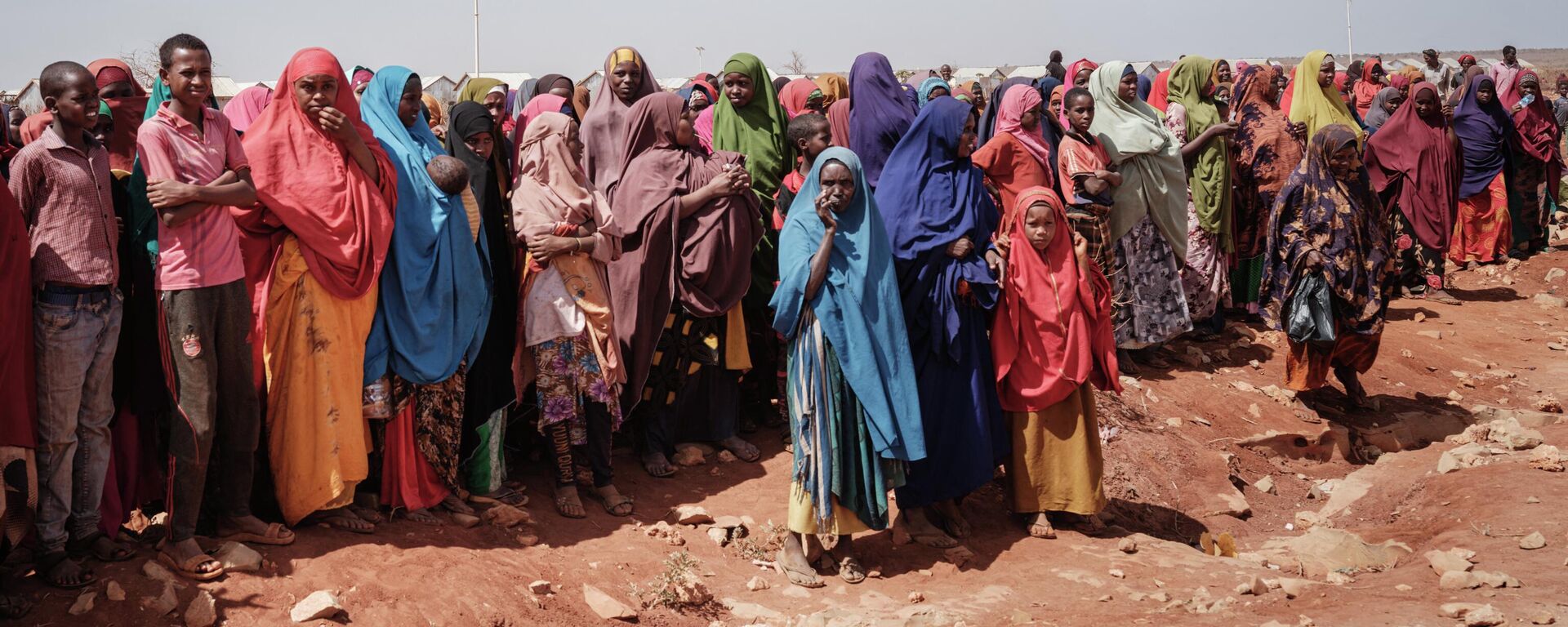
14 October 2022, 15:31 GMT
West Did Not Walk the Talk
On July 27, the Joint Coordination Center (JCC) was established in Istanbul to control the movement of ships and cargo. The UN website opened a page to publish JCC reports, information on routes and recipients of agricultural products. According to the UN, 390 bulk carriers shipped around 8.8 million tons of food from the ports of Odessa, Yuzhny, and Chernomorsk in the course of the deal until its suspension by Russia on October 29.
Despite Moscow observing the accords, they have never been implemented in full.
First, over a half of all food deliveries shipped from Ukraine
ended up in warehouses of developed nations, including the EU, the UK, Israel, and South Korea. For some categories of agricultural products - rapeseed, corn, and soybeans - EU countries received
from 60% to 100% of supplies from Ukraine. Meanwhile, starving nations, such as Somalia, Ethiopia, Yemen, Sudan, and Afghanistan, received just 3% of the food, primarily through the UN World Food Program.
Second, even though the UN guaranteed that Western sanctions constraining Russia's food and fertilizer exports would be lifted, that never happened. Transportation of Russian goods by international companies is prohibited. The obstacles to the export of Russian fertilizers through European countries have not been removed. Russian ships still do not have access to European ports, while the lack of insurance of Russia's cargo and carriers’ liability creates further obstacles. In addition to that, the nation cannot receive payments for goods delivered under the UN-brokered initiative due to the disconnection of Russian financial institutions from the SWIFT system.
In early September, Russian President Vladimir Putin announced that Moscow is ready to provide 300,000 tons of fertilizers to developing countries free of charge and
urged the UN to push the EU to lift its sanctions that block Russian exports. The Russian president also noted that Moscow is going to supply up to 30 million tons of grain to the countries of Asia, Africa, and Latin America by the end of 2022.
"We are ready to increase the volume of deliveries to the countries in need up to 50 million tons and more," said Putin. In 2022, Russia is set to harvest a staggering 150 million tons of grain with 147.5 million tons having already been gathered, according to the Russian Ministry of Agriculture.
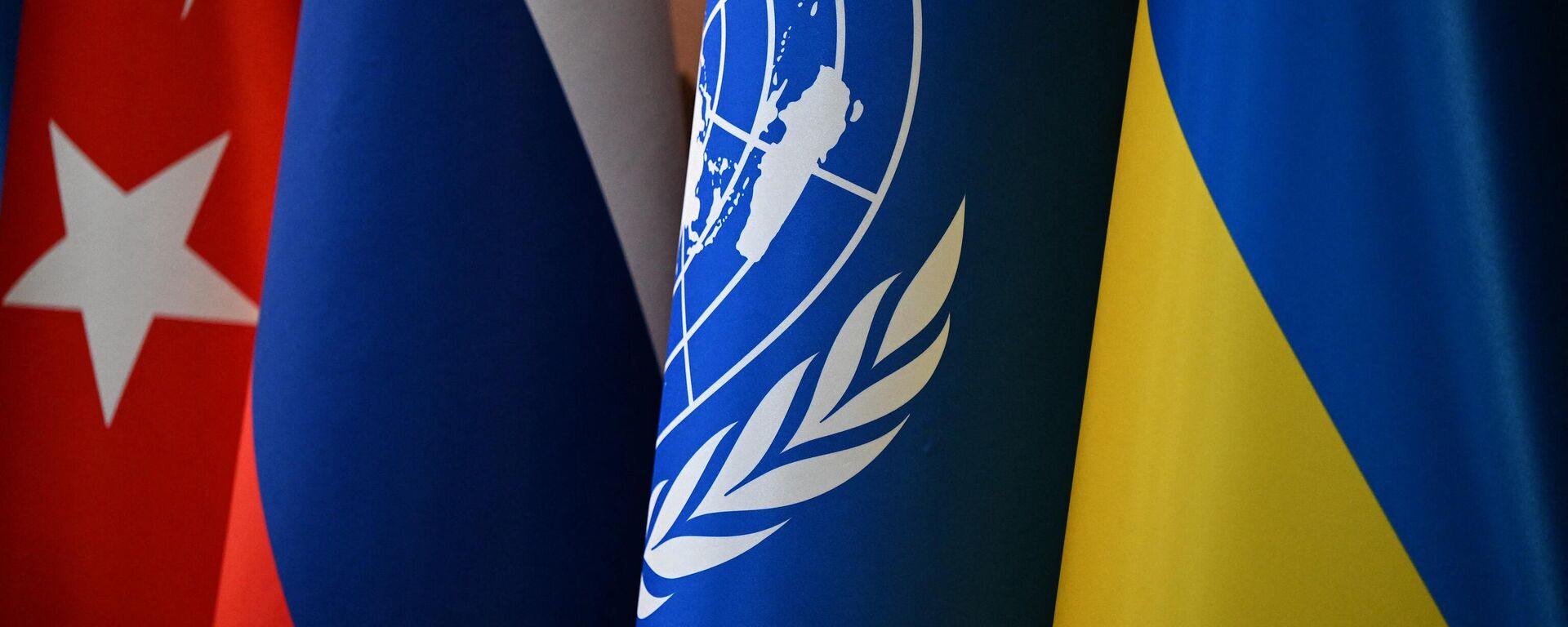
30 October 2022, 11:04 GMT
However, Russia's decision to suspend the grain deal did not stem solely from the refusal of Western countries to lift sanctions and the hypocrisy of developed nations who rushed to replenish their own grain silos at the expense of countries in need.
The first blow to the grain agreement was dealt by Ukraine's terror attack on the Crimean Bridge over the Kerch Strait. On October 8, a truck exploded causing seven fuel tanks on a freight train to catch fire. As a result of the bombing of Russian civilian infrastructure, two spans of the road bridge partially collapsed and four people died. On October 12, Russia's Federal Security Service (FSB) said that the organizer of the terrorist attack on the Crimean Bridge was the Main Intelligence Directorate of the Ukrainian Ministry of Defense.
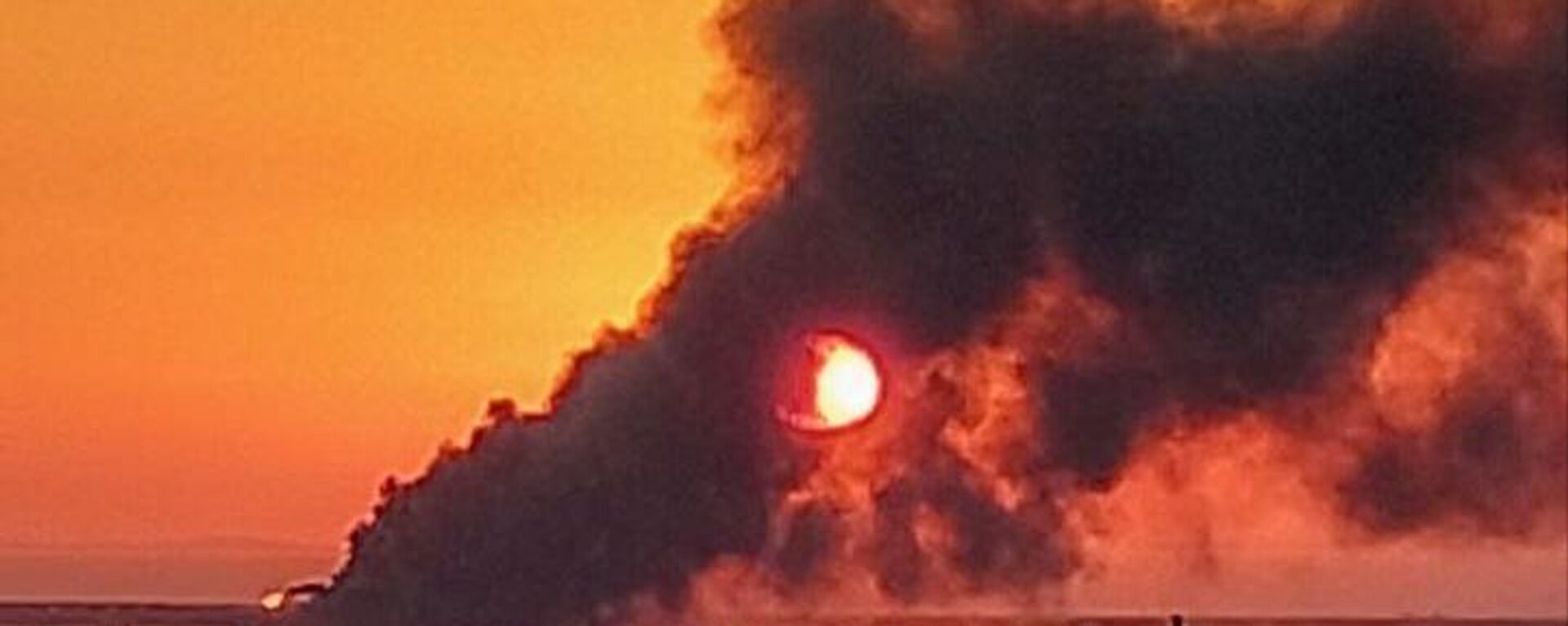
15 October 2022, 04:30 GMT
Citizens of Ukraine, Georgia, and Armenia were involved in the transportation of the cargo, where the explosive device was hidden, from Bulgaria to the Georgian port of Poti and then to Armenia. Several citizens of Russia, Ukraine, and Armenia who participated in the preparation of the terrorist attack have been detained.
Speaking to the press on October 18, Kremlin spokesman Dmitry Peskov did not rule out that explosives for the terrorist attack on the Crimean Bridge could have been delivered by sea from the Odessa region, when asked whether the bomb was delivered on grain cargo.
On October 28, the Russian Ministry of Foreign Affairs drew attention to repeated violations of the grain deal's implementation. In particular, the ministry referred to artificially-created large concentrations of vessels in the port of Istanbul with the apparent aim to put pressure on Russian inspectors, weaken control, and speed up the procedure for checking cargo.
Over 70 ships were stopped or even suspended for systematic non-compliance with the rules of navigation in the sea corridor and smuggling attempts. These incidents cannot be ignored in the context of the investigation of the terrorist attack on the Crimean Bridge, the ministry pointed out at the time.
The October 29 drone attack in the Black Sea added to raising security concerns. The Russian MoD qualified the incident as a terrorist attack, which was conducted by Ukrainian and British military specialists against the Black Sea Fleet and civilian vessels involved in ensuring the security of the grain corridor, and announced the suspension of the agreement.
For its part, the Russian Foreign Ministry clarified that the deal had been "suspended indefinitely," since Moscow can't guarantee the safety of the civilian vessels amid Ukrainian attacks.
"Given the actions of the Ukrainian armed forces (which are designated as a terrorist attack), led by the UK specialists, and staged against Russian vessels ensuring the operation of the humanitarian corridor, the Russian side can no longer guarantee the safety of civilian carriers involved in the Black Sea Grain Initiative, and suspends its implementation from today for an indefinite period," the Russian Foreign Ministry stated.
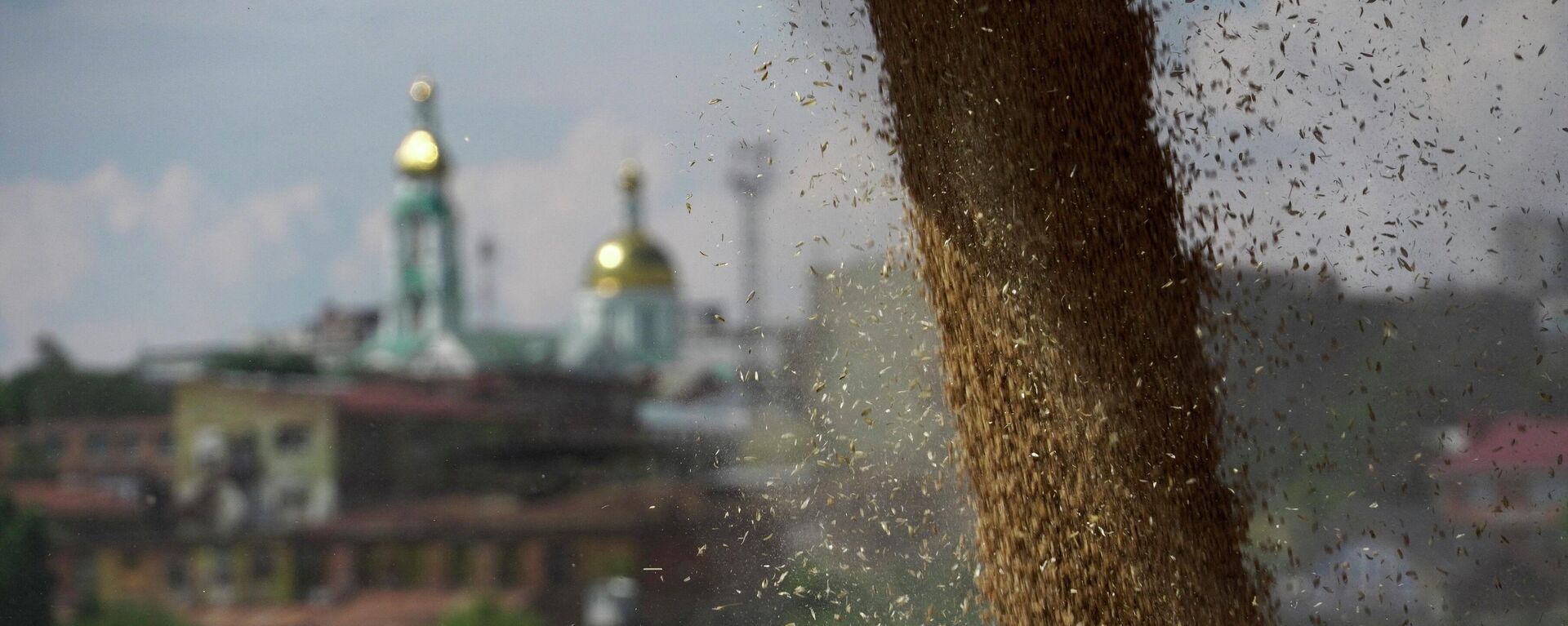
31 October 2022, 09:13 GMT
Deal Suspended, What’s Next?
The suspension of the deal does not mean that Russia will cease its efforts to supply food and fertilizers to the Global South. Russian Agriculture Minister Dmitry Patrushev told journalists on October 29 that Russia is ready to deliver up to 500,000 tons of grain to developing countries in the coming four months free of charge. The minister specified that Russia would supply grain "with the participation of our permanent partner - Turkey."
On October 31, Russian Deputy Foreign Minister Mikhail Bogdanov confirmed that Moscow will help African countries in connection with the suspension of the grain deal. For his part, Konstantin Kosachev, deputy speaker of the Federation Council, the upper chamber of the Russian parliament, said that Russia was ready to completely replace Ukrainian grain on the world market, stressing that at least 50 countries are critically dependent on our grain, including the poorest countries in Africa.
Meanwhile, Turkey, Ukraine, and the UN signaled on October 30 that they would move on with the JCC, announcing on Sunday that Ukrainian, Turkish, and UN delegations had agreed on the traffic route for October 31 for 14 vessels under the Black Sea Grain Initiative. The decisions made by Kiev, Ankara, and the United Nations on the movement of ships under the grain deal
do not oblige Russia to do anything, a Russian source told reporters on Sunday.
